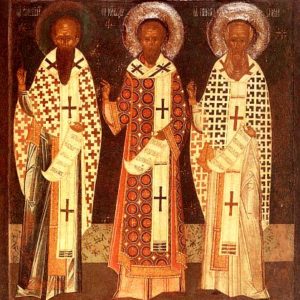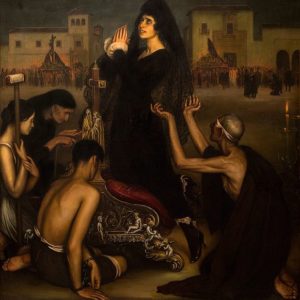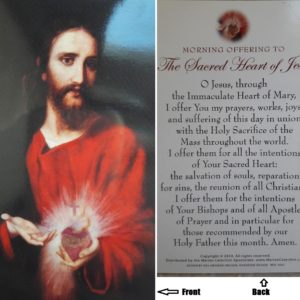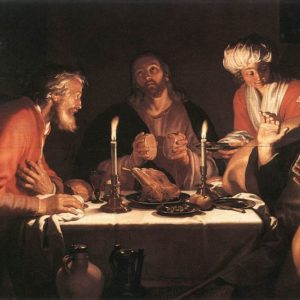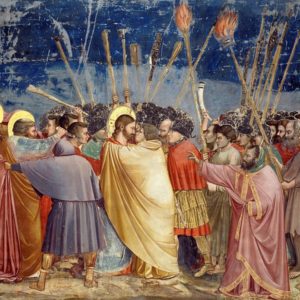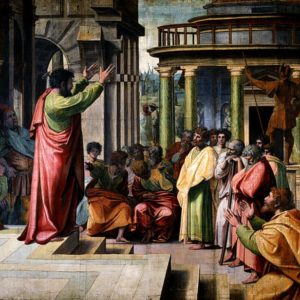Continuing the series on “the Saints and prayer,” I spoke yesterday on prayer and the Eastern Church Fathers. I wanted them as a change of pace for two reasons: I find that Catholics in the West are much more familiar with Western Church Fathers like Augustine, Ambrose, Gregory, and Leo, than they are with Eastern… Continue reading The Eastern Church Fathers on Prayer
Tag: faith
Are Some People’s Prayers More Valuable Than Others?
When Catholics talk about praying to Mary, a classic Protestant objection is “but I can go directly to Jesus!” To that, I’d say, “True, you could go to Jesus alone… but if you pray to Mary, you and the Virgin Mary can go directly to Jesus!” The “why not just go directly to Jesus” objection points to one of the real differences between Catholics and Protestants on this question: we Catholics believe that some people’s prayers are more efficacious than others.
Pledge of Future Glory: The Eucharist as the Promise of Salvation
The Church refers to the Eucharist as a “pledge of future glory.” What does that mean, and how does faithfully receiving the Eucharist ensure our salvation and bodily resurrection?
Do Muslims, Jews, and Christians Worship the Same God?
Do Muslims, Jews, and Christians worship the same God? Vatican II seems to say “yes,” but how can that be, since Muslims and Jews deny the Trinity?
Does Teaching Religion “Brainwash” Kids?
Is teaching children religion brainwashing? The question was posed at Debate.org, and an astounding 86% of respondents said yes. So why should Christian parents share the Gospel with their children?
Christianity: A Bargain That Will Cost You Everything
Sometimes, when we talk about Christianity, we present it as a great deal. “My yoke is easy, and my burden is light,” Jesus says (Matthew 11:30). But other times, it sounds like Christianity is costly. Remember that Jesus also says “he who does not take his cross and follow me is not worthy of me” (Matthew 10:38). So which view is right? Both of them. Here’s are two parables that Jesus gives that explain that apparent contradiction.
The Controversial Catholic Prayer that You Should be Praying Daily
The daily morning offering, a Catholic spiritual tradition we can all make use of, serves as a reminder of the areas of Christian disunity, and serves as an unintentional advertisement for the need for prayer.
The Catholic Mass in Scripture, the Early Church, and Today
In Luke 24:13-35, the two disciples on the road to Emmaus have a surprise encounter with the risen Lord, Jesus Christ. There are basically four “stages” of communion in this encounter, and it’s the same four stages, in the same order, that we find in the earliest Christian worship, and that we see in the Mass today. So let’s look at each of the four stages, and then consider why it matters that they should all follow the same structure and pattern….
4 Things We Can Learn from the Apostle Judas
This Holy Week (and especially today, “Spy Wednesday”), it’s worth taking a closer look at the Apostle Judas Iscariot. Here are four things that we can learn from him.
About Those Noble Bereans…
It’s more than a little ironic that Protestants who believe that all doctrines need to be found in the 66 books of their Bible claim to be modelling themselves off of the Bereans (Acts 17:10-12), who neither had a 66-book canon nor a belief that all doctrines need to be found in the Scriptures. The Bereans are noble, but they’re not Protestant.
